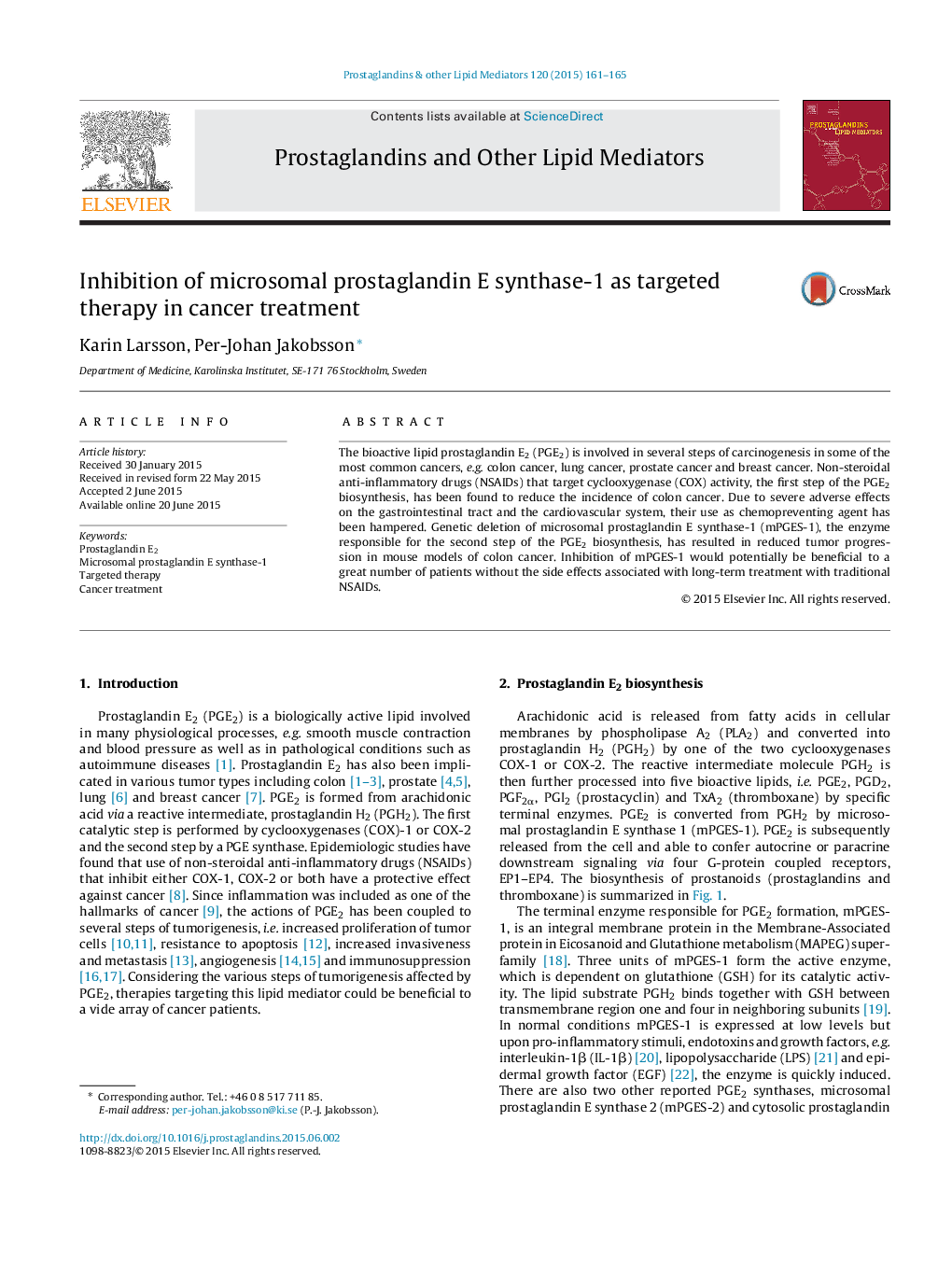| Article ID | Journal | Published Year | Pages | File Type |
|---|---|---|---|---|
| 2019555 | Prostaglandins & Other Lipid Mediators | 2015 | 5 Pages |
•PGE2 and mPGES-1 are important for cancer progression.•COX inhibition has anti-tumorigenic effects but problems with side effects.•mPGES-1 is a promising target for anti-cancer treatment.•Dual human/mouse mPGES-1 inhibitors will facilitate research in tumor mouse models.
The bioactive lipid prostaglandin E2 (PGE2) is involved in several steps of carcinogenesis in some of the most common cancers, e.g. colon cancer, lung cancer, prostate cancer and breast cancer. Non-steroidal anti-inflammatory drugs (NSAIDs) that target cyclooxygenase (COX) activity, the first step of the PGE2 biosynthesis, has been found to reduce the incidence of colon cancer. Due to severe adverse effects on the gastrointestinal tract and the cardiovascular system, their use as chemopreventing agent has been hampered. Genetic deletion of microsomal prostaglandin E synthase-1 (mPGES-1), the enzyme responsible for the second step of the PGE2 biosynthesis, has resulted in reduced tumor progression in mouse models of colon cancer. Inhibition of mPGES-1 would potentially be beneficial to a great number of patients without the side effects associated with long-term treatment with traditional NSAIDs.
